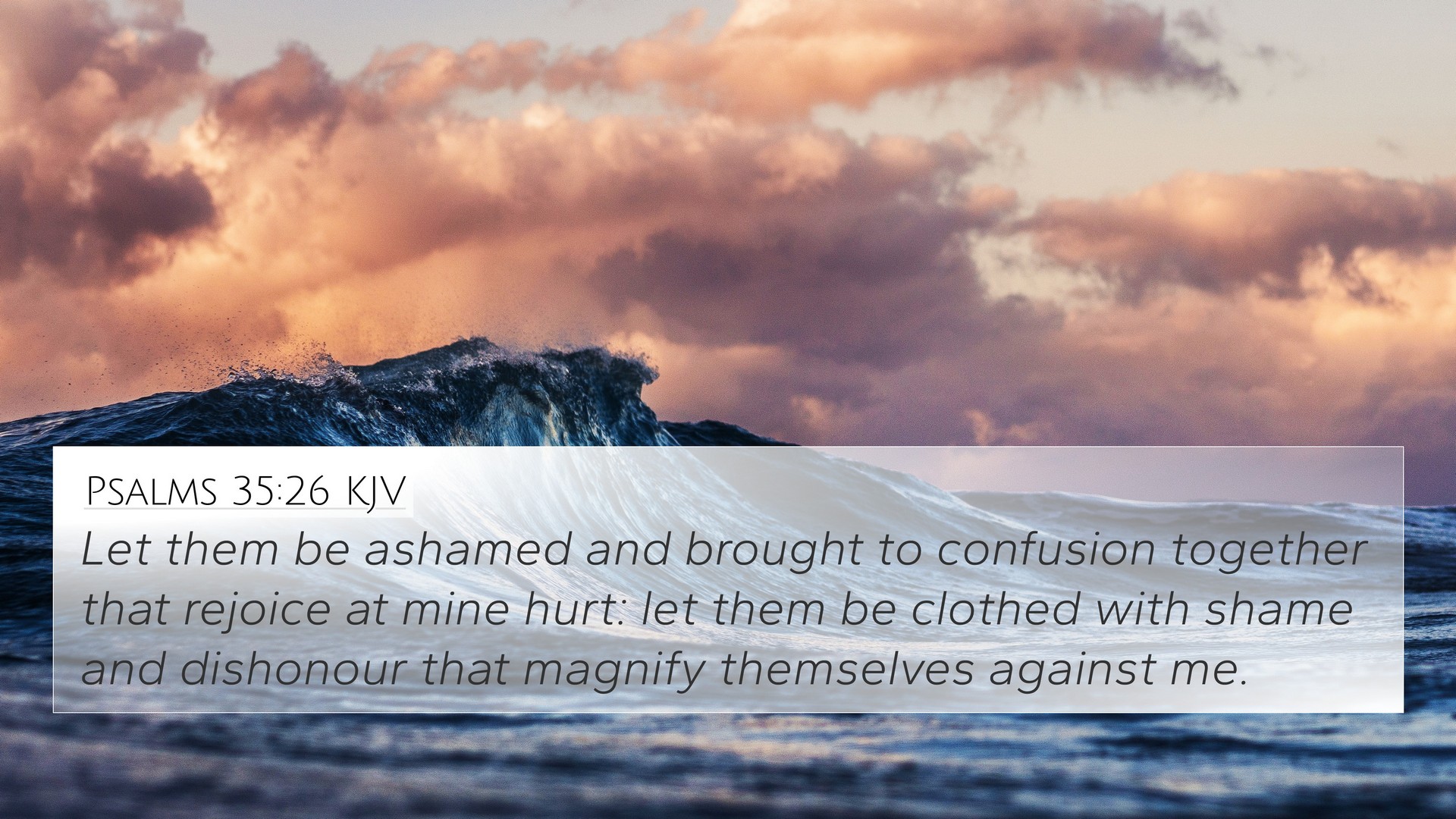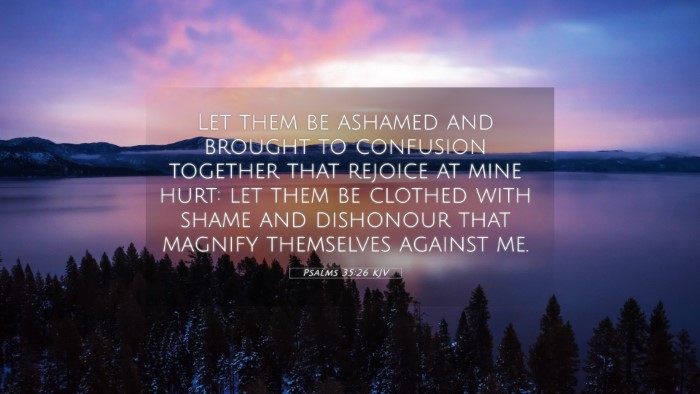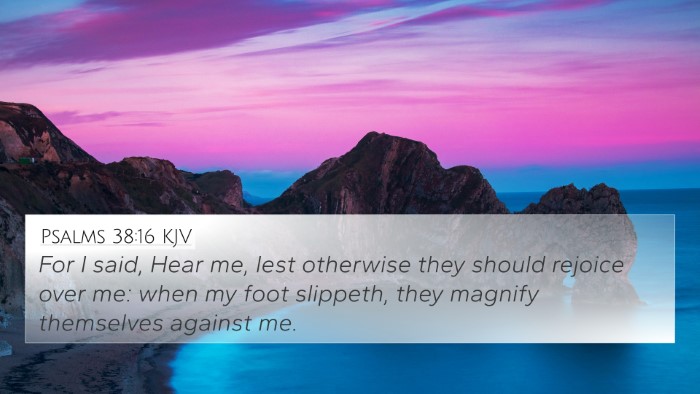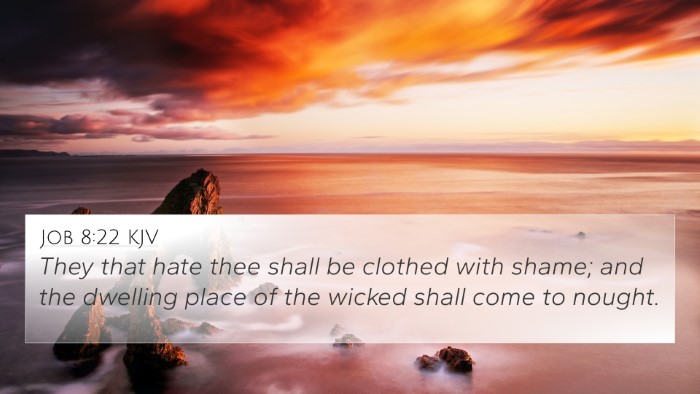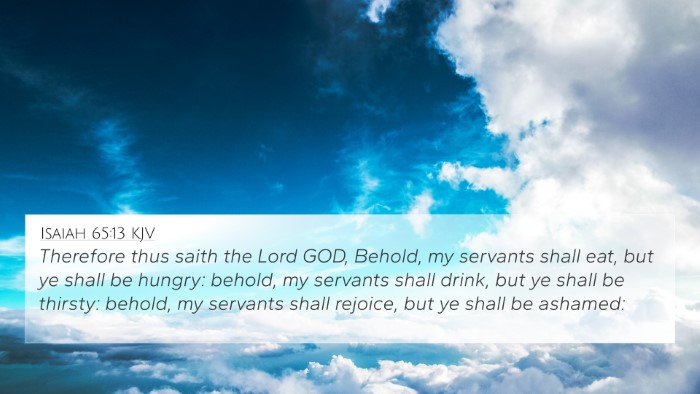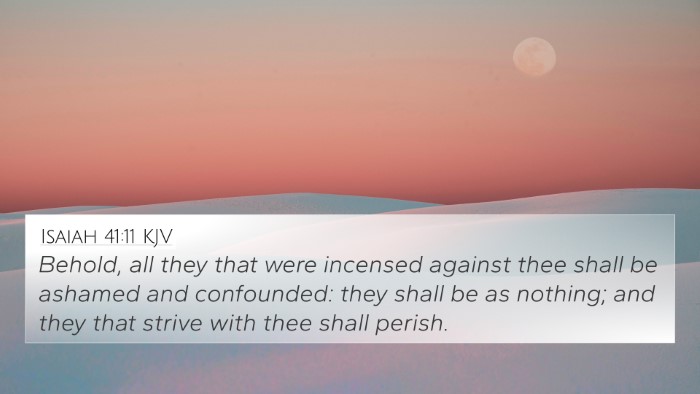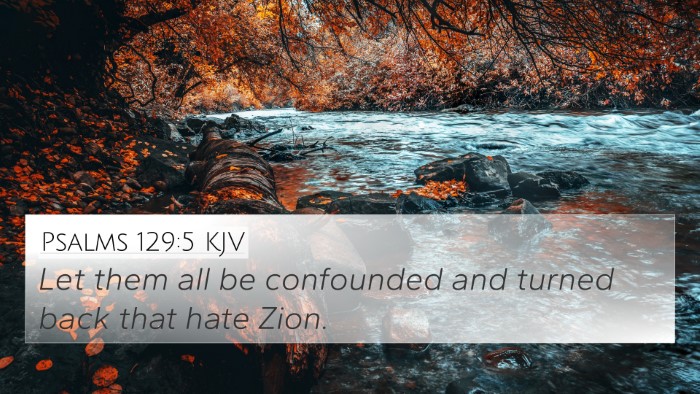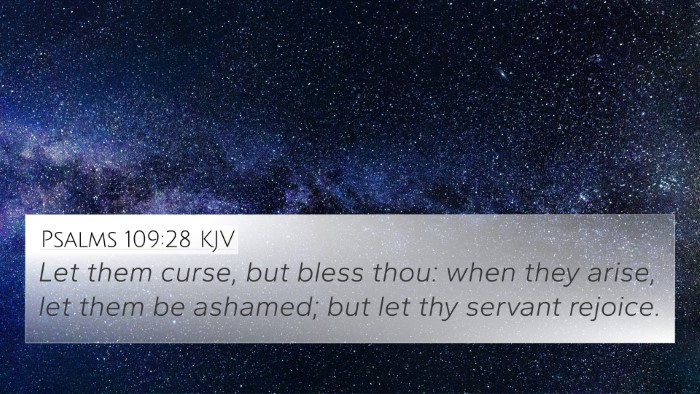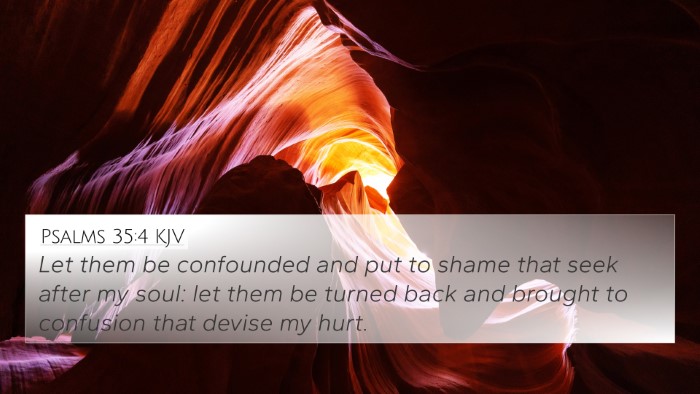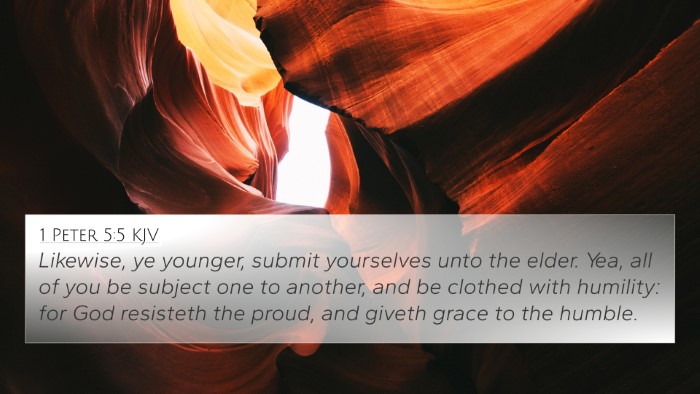Psalms 35:26 - Meaning and Interpretation
Psalms 35:26 reads: "Let them be ashamed and brought to confusion together that
rejoice at my hurt: let them be clothed with shame and dishonour that magnify themselves
against me." This verse is a plea for divine justice against adversaries who take
pleasure in the psalmist's suffering. The psalmist seeks assurance that God will vindicate
his honor and display divine retribution against the wicked.
Summarized Insights from Public Domain Commentaries
The various commentaries provide intricate details on the theological implications and
emotional backdrop of this verse. Matthew Henry emphasizes the psalmist's earnest desire
for God's intervention against those who boast in their malicious triumphs over him.
He explains that shame and dishonor are appropriate responses for those who take pride in
causing pain to others, especially to the righteous.
Albert Barnes notes that the call for enemies to be ashamed reflects a deep longing for
justice. He points out that the psalmist's keen awareness of the malicious actions of his
foes is grounded in a desire for divine fairness. Barnes elucidates the importance of
contrasting shame and glory; those who oppose the righteous will ultimately bear the
weight of their actions before God.
Adam Clarke interprets the plea as a prayer for divine intervention and a cry for
righteousness. He highlights the dual focus on divine justice and personal suffering,
suggesting that God’s ultimate judgment will bring clarity to the situation. Clarke also
warns against the pride of those who seek to harm others, noting that such arrogance will
lead to their downfall.
Cross-References to Psalms 35:26
The following are pertinent cross-references that enhance the understanding of the themes
of shame, justice, and divine retribution found in Psalms 35:26:
- Proverbs 11:21: "Though hand join in hand, the wicked shall not be
unpunished: but the seed of the righteous shall be delivered."
- Isaiah 26:11: "LORD, when your hand is lifted up, they will not see:
but they shall see, and be ashamed for their envy at the people; yea, the fire of
thine enemies shall devour them."
- Romans 12:19: "Dearly beloved, avenge not yourselves, but rather
give place unto wrath: for it is written, Vengeance is mine; I will repay, saith the
Lord."
- Psalm 69:28: "Let them be blotted out of the book of the living, and
not be written with the righteous."
- Psalm 7:16: "His mischief shall return upon his own head, and his
violent dealing shall come down upon his own pate."
- Matthew 7:2: "For with what judgment ye judge, ye shall be judged:
and with what measure ye mete, it shall be measured to you again."
- Psalm 58:10: "The righteous shall rejoice when he seeth the
vengeance: he shall wash his feet in the blood of the wicked."
- Luke 18:7: "And shall not God avenge his own elect, which cry
day and night unto him, though he bear long with them?"
- Deuteronomy 32:35: "To me belongeth vengeance, and recompence; their
foot shall slide in due time: for the day of their calamity is at hand, and the things
that shall come upon them make haste."
- Psalm 94:1-2: "O Lord God, to whom vengeance belongeth; O God, to
whom vengeance belongeth, shew thyself. Lift up thyself, thou judge of the earth:
render a reward to the proud."
Thematic Bible Verse Connections
The themes in Psalms 35:26 echo throughout the Bible, depicting a God who cares for the
oppressed and promises justice against the wicked. This intertextual relationship invites
further study into similar verses and narratives that chronicle God’s dealings with sinners
and His protective nature towards those who are wronged.
How This Verse Connects to Broader Biblical Themes
Psalms 35:26 can be seen as part of the larger Biblical narrative concerning God’s
justice, divine retribution, and the ultimate fate of the wicked versus the righteous.
The Old Testament portrays God's justice vividly, while the New Testament shifts focus to
grace and mercy, while still ensuring that judgment is maintained for the evildoers.
Using Bible Cross-References for Deeper Understanding
Utilizing tools for Bible cross-referencing enhances understanding and the relevance of
themes across scripture. A systematic Bible cross-reference guide can help readers to
identify connections and gain insights into how various passages relate and illuminate each
other. For instance, studying Psalms alongside the prophetic writings can reveal consistent
themes of justice and restoration.
By integrating a rich study of cross-referencing resources, believers can realize a more
nuanced understanding of their faith and examine the extensive tapestry of scripture that
supports the truth of God’s Word.
